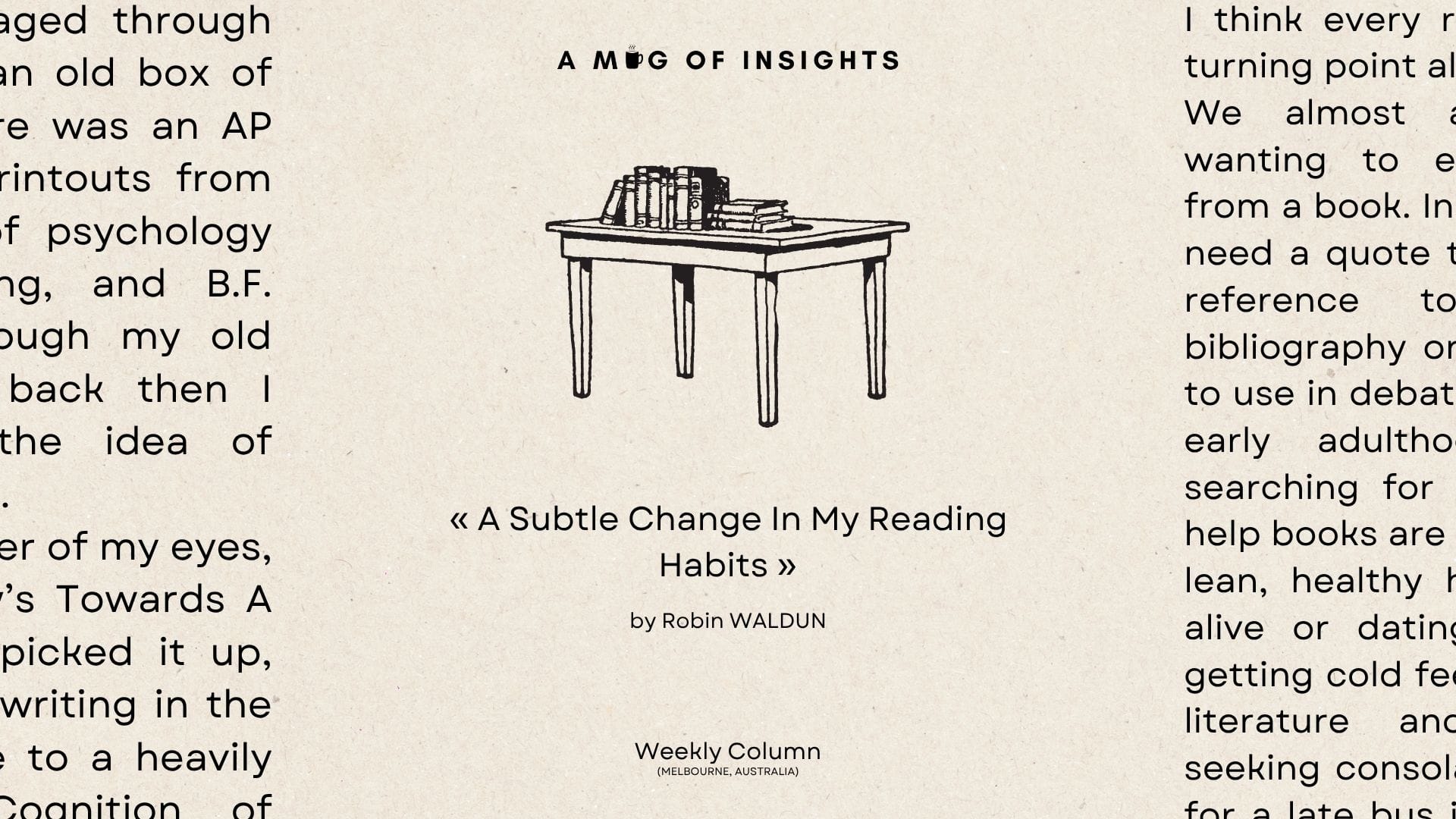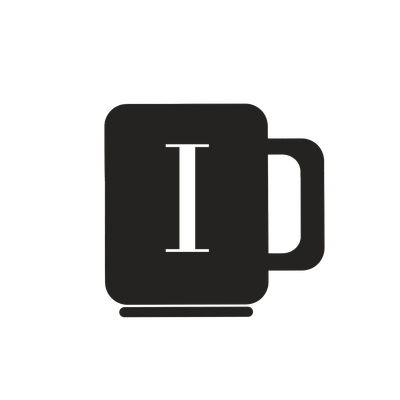A Subtle Change In My Reading Habits

Welcome to the weekly column from A Mug of Insights! From now on, I'll dispatch these letters on Saturdays, and paid subscribers will receive their 1-2-Read letters on Mondays. If you like what you're reading, consider upgrading to the Grande tier for journal prompts and a practical exercise every week to strengthen your reading muscles! Thank you for reading, and I look forward to seeing you next week.
Two days ago, I rummaged through the garage and found an old box of high school books. There was an AP psychology textbook, printouts from the DSM, and stacks of psychology classics by Freud, Jung, and B.F. Skinner. As I read through my old notes, I realised that back then I might’ve entertained the idea of becoming a psychologist.
But then, out of the corner of my eyes, I saw a copy of Maslow’s Towards A Psychology of Being. I picked it up, recognised my old handwriting in the margins as they led me to a heavily annotated chapter: ‘Cognition of Being in the Peak Experiences’.
In short, Maslow argued that there are two ways of seeing the world (cognitions): Deficient Cognition, where we try to extract something useful from what we see and Being Cognition, where we let things be and appreciate them as they are. I kept reading the chapter alongside my notes: this is brilliant! Use this argument in the October test. Copy for citation in an essay. And gradually, something became clear to me after reading my notes and annotations under the flickering garage light. Yes, what I read has changed. Now, I split my time between literature and non-fiction books. But how I read is also unrecognisable to my 15-year-old self.
I think every reader will hit this turning point along their journeys. We almost always start off wanting to extract something from a book. In schools, we might need a quote to handle a test, a reference to place in a bibliography or a smart-ass quip to use in debates. When we enter early adulthood, what we’re searching for in stacks of self-help books are dieting tips to stay lean, healthy habits to keep us alive or dating advice to stop getting cold feet at a bar. Even in literature and essays, we’re seeking consolation after waiting for a late bus in a rain-drenched shirt, affirmation after we’ve gained a juvenile insight or escapism when life gets a bit too much. All these intentions are well and good, but they’re also, in Maslow’s definition, Deficient Cognition. We’re still searching for something useful for bettering our lives without realising that there’s another stage to the art of reading.
I discovered this new stage when I started practising martial arts. Traditional Karate systems come in two parts. The first is kata (型), where the emphasis is on a series of choreographed movements. The second is kumite (組手), where a student applies the movements in combat. Now, kumite is pretty easy to understand. It’s the stuff you see in The Karate Kid, and it’s what probably drew a lot of people into martial arts. But kata is trickier to grasp. What’s the point of all this dancing around if the end goal is to become a better fighter?
This changed when I performed my first kata on a Wednesday night. Somehow, the kata unified all the separate blocks and attacks I’ve learned into a beautiful flow. And the more I practised it, the sharper my separate techniques became. And after a few weeks of research, I realised that all the combo techniques in combat were derived from sections of increasingly complex katas. Hence, just like playing an instrument, the better your scales are, the easier it is to perform a complex melody. The better your katas are, the easier it is to adapt the forms into combat.
But here’s something strange I noticed when I watched my sensei perform an advanced kata called Seipai (十八手, literally means ‘eighteen hands’). He seemed totally engrossed in the footwork, the strikes and blocks with zero awareness of anything outside of his direct line of vision. In that moment, he wasn’t thinking about combat or combinations at all. All that existed was the form and form alone as he let out a deep breath at the end of the sequence, followed by a bow. This, I thought, is what Being Cognition looks like.
According to Maslow, Being Cognition no longer cares about the utility of an activity or an object. It simply treats them as ends in themselves without needing to extract anything. The kata is no longer for perfecting combat, the scales on the piano are no longer ladders for performing melodies, and in the case of reading, we no longer want anything from the book as our attention is turned to the beauty of the prose, the meters and the music that comes from the use of rhetoric.
This is the pleasure of reading in its purest form: a total and sustained attention to reading itself without any intentions. Sure, it’s nice to get an insight, highlight a quote or harvest a citation, but that’s not the point. The point is to sit in the magic of language and wonder how we can derive meaning and sensations from scribbles on dead wood. And this drive is shared among the most prolific readers I know. Below all the intelligent ideas and turns of phrase, there is always that steady appreciation for words themselves, silently driving them to turn to the next page, and the next, and the next…
Until next week
Robin
Subscribe to my newsletter to get the latest updates and news

Member discussion